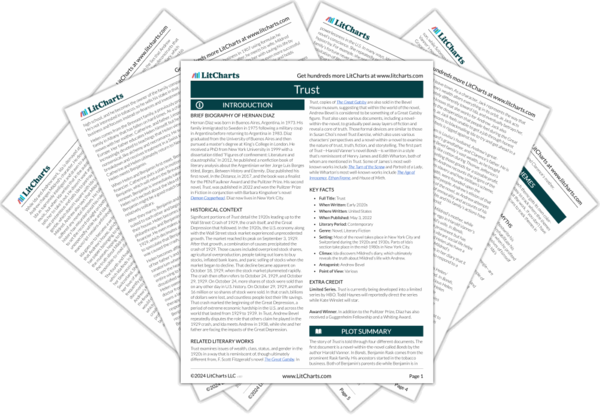William Quotes in Trust
Rather than tobacco, which he would have been unable to store properly, he purchased non-perishable goods, especially cotton from farther south and sugar from the newly acquired Louisiana. This venture was based on the assumption that he would be able to sell the merchandise in Europe once the embargo was lifted and clear his debt while making a profit.
Producers everywhere were struggling just to keep their estates in the family. William, a mere twenty-six-year-old, was welcomed as a savior. Prices dropped sharply as plantation owners fought one another to secure a deal with him. And for as long as possible he did his best to assist as many of them as he could, bringing much-needed relief to countless families.
Self-interest, if properly directed, need not be divorced from the common good, as all the transactions [William] conducted throughout his life eloquently show. These two principles (we make our own weather; personal gain ought to be a public asset) I have always striven to follow.
If neither my ancestors nor I had understood that a healthy economy, prosperous for all, had to be safeguarded, our careers would have been very brief indeed. A selfish hand has a short reach.
This is why I find the baseless, libelous accusations directed at my business practice incensing. Should not our very success be convincing enough evidence of everything we have done for this country? Our prosperity is proof of our good deeds.
I think of my father. He would always say that every dollar bill had been printed on paper ripped off a slave’s bill of sale. I can still hear him today. “Where does all this wealth here come from? Primitive accumulation. The original theft of land, means of production and human lives. All throughout history, the origin of capital has been slavery. Look at this country and the modern world. Without slaves, no cotton; without cotton, no industry; without industry, no finance capital. The original, unnamable sin.” I keep reading through the draft. Of course, not a single mention of slavery.

William Quotes in Trust
Rather than tobacco, which he would have been unable to store properly, he purchased non-perishable goods, especially cotton from farther south and sugar from the newly acquired Louisiana. This venture was based on the assumption that he would be able to sell the merchandise in Europe once the embargo was lifted and clear his debt while making a profit.
Producers everywhere were struggling just to keep their estates in the family. William, a mere twenty-six-year-old, was welcomed as a savior. Prices dropped sharply as plantation owners fought one another to secure a deal with him. And for as long as possible he did his best to assist as many of them as he could, bringing much-needed relief to countless families.
Self-interest, if properly directed, need not be divorced from the common good, as all the transactions [William] conducted throughout his life eloquently show. These two principles (we make our own weather; personal gain ought to be a public asset) I have always striven to follow.
If neither my ancestors nor I had understood that a healthy economy, prosperous for all, had to be safeguarded, our careers would have been very brief indeed. A selfish hand has a short reach.
This is why I find the baseless, libelous accusations directed at my business practice incensing. Should not our very success be convincing enough evidence of everything we have done for this country? Our prosperity is proof of our good deeds.
I think of my father. He would always say that every dollar bill had been printed on paper ripped off a slave’s bill of sale. I can still hear him today. “Where does all this wealth here come from? Primitive accumulation. The original theft of land, means of production and human lives. All throughout history, the origin of capital has been slavery. Look at this country and the modern world. Without slaves, no cotton; without cotton, no industry; without industry, no finance capital. The original, unnamable sin.” I keep reading through the draft. Of course, not a single mention of slavery.











